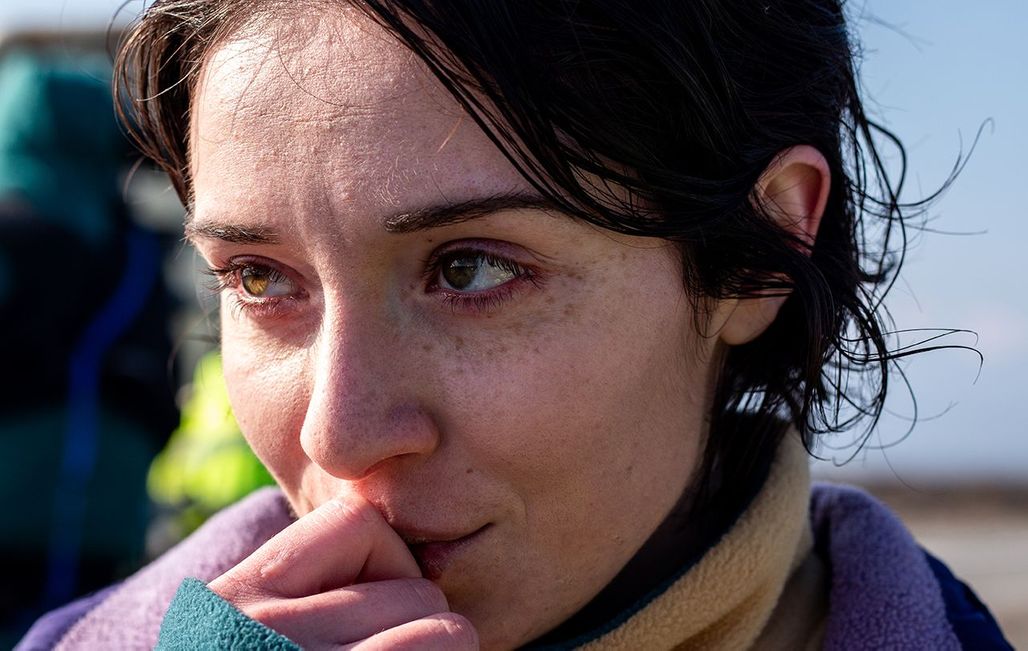
Razzhimaya Kulaki (Unclenching the Fists) as seen by Kira Kovalenko

For her second feature film after Sofichka (2016), Russian director Kira Kovalenko lifts the lid on freedom within the family unit. Razzhimaya Kulaki (Unclenching the Fists) tells the tale of Zaur, a family man who decides to move his three children to a small mining town in northern Ossetia following a traumatic event.
What inspired you to begin work on this film?
The initial inspiration for the story came from a line in Faulkner’s Intruder in the Dust about how, while some people can endure slavery, nobody can stand freedom. The idea of freedom as a burden was the single most important theme for me while I was working on the film. Inevitably, the same idea led me to reflect on the burden of memory, and on the link between the two. Is it possible to endure freedom from memory? I had been living with these thoughts for a long time.
Later I remembered a small town which I passed once and decided to return to it again. It is just a small town in a ravine, a group of apartment buildings behind a high wall. I walked around this town and thought about a story that could be born here. This place looked like a box in which a human can be hidden, protected, concealed.
The result was a tale of people who lived through this event, and who, many years later, are trying to come to terms with the trauma it caused. The world around them is still scarred by it, and they’re broken themselves, in a way that dictates all of this family’s relationships with each other. The attempt to forget and to preserve entails an act of violence against human will, which, paradoxically enough, is also an act of love.
Please share a few words about your actors.
Milana Aguzarova (Ada) studies acting at a university in Vladikavkaz. When I was flying to Ossetia for auditions, my flight was delayed. I was really late and the first person I saw was Milana who was waiting patiently for me. When I invited her to join the film, I had a different role in mind for her, but when we started talking I realised that I made a mistake. I asked her to come in again and again because I was trying to figure her out, trying to understand why I feel like there are two people in one body. Two entities that are constantly struggling with each other: incredible strength and fragile weakness.
Alik Karaev (The father) is the People’s Artist of the Republic of North Ossetia-Alania and an actor at the North Ossetian State Equestrian Theater, Narti. The moment I met him I instantly felt a strong connection, I realised that he is the man I can always rely on, I saw a lot of light and understanding in him.
In all other roles I casted amateur actors – Soslan Hugaev, Hetag Bibilov, Arsen Hetagurov and Milana Pagieva.
My colleagues went around Ossetia and visited different places where large groups of young people usually spend their time: schools, sport clubs, etc. There were a lot of them, we went through thousands of photographs! Young people usually laughed when we told them why we were taking their pictures, no one believed that they could be actors in a real film. I always recognised my characters, I just had to look at a picture or see a short video and I knew. Didn’t really matter how the auditions went. I was absolutely convinced that I saw exactly the people I wrote my script about. This was a tremendously inspiring experience. I saw how my film was coming to life. I never experienced anything that intense ever in my life.
What inspired you to become a filmmaker? What were the sources of your inspiration?
It was never a choice, I never specifically wanted to be a director. I just wanted to get a good education and my intuition drove me to apply to a director’s school of Alexander Sokurov. I was never that much into movies, before I started to study under Sokurov I watched a very small number of films. In our first year we watched a newsreel from 1901. Horse drawn carriages rattled on pavement, people strolled by. A young boy looked into a camera and waved his hand at me. The cinema saved this moment. This is my inspiration.
What are your views on the state of the film industry in your country?
I want young people in our country to have more opportunities to make movies so it would be easier for them to freely talk about the issues that really matter to them. I want this to change so that young filmmakers won’t have to wait for years to make their first films.
If you could meet a favourite filmmaker, who would it be and what would be your first question?
I would’ve loved to get on the set of a Lee Chang-dong or Terrence Malick movie. But no words.


